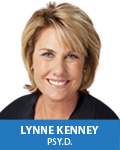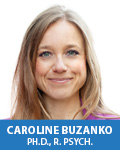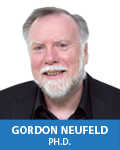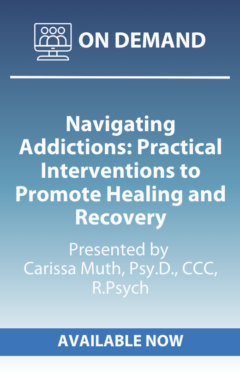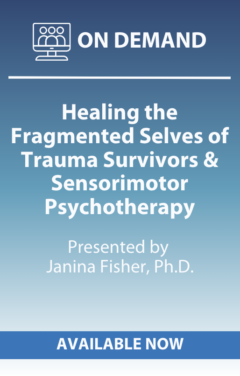Description
LIVE STREAM: November 25 – 27, 2024 from 8:30am – 4:00pm (Vancouver, BC) Please adjust your start time according to your specific time zone.
ON-DEMAND: Recorded footage & course content (certificate, videos, quiz) will be available December 1- 28, 2024. Extensions cannot be granted under any circumstances.
Registration will close November 24, 2024.
Monday, November 25, 2024 | Day One
Strengthen Executive Function with 20 Brain Coaching & Cognitive-Motor Activities to Improve Self-Regulation, Attention, Memory and Response Inhibition in Children and Adolescents
WORKSHOPS 1 & 4: PRESENTED BY Lynne Kenney, Psy.D.
In this dynamic and interactive 6-hour workshop, participants will delve into the fascinating realm of executive function skills and their pivotal role in academic achievement and lifelong success. Led by renowned pediatric psychologist and international educator, Dr. Lynne Kenney, this workshop will explore cutting-edge research from neuroscience, kinesiology, cognitive science, and neuroeducation.
Embark on a transformative journey that integrates research-based tools and activities into your educational practice, empowering you to enhance cognition, foster learning, and cultivate confident, self-regulated thinkers. Dress comfortably and be prepared to move and learn with enthusiasm, as we embark on this exciting exploration of executive function skills and cognitive-motor activities.
Optimizing Self-Regulation and Managing Big Emotions
WORKSHOPS 2 & 5: PRESENTED BY Caroline Buzanko, Ph.D., R. Psych
In today’s world, our children and youth face an unprecedented level of stress and pressure, making it hard to effectively self-regulate and manage day-to-day stressors. As parents, educators, and mental health professionals, it’s essential that we equip ourselves with effective strategies to help children and teens develop the skills they need to navigate life’s challenges. When they don’t know how to manage those emotions, problem behaviours often result and can negatively affect their physical, psychological, academic, and social well-being. For many, they struggle to meet even the most basic expectations. It is essential they receive the right support.
Join us for a transformative workshop designed for mental health professionals, educators, parents, and caregivers to build self-regulation and emotional management skills in children and teens. During this workshop, you’ll learn evidence-based interventions and practical tools to promote healthy self-regulation and emotional management skills in children and youth. This workshop will provide you with the knowledge and skills you need to make a meaningful difference in the lives of the children and teens you work with. Join us in this engaging and practical workshop, where you will leave with the skills and knowledge to empower children and youth to manage their emotions, overcome challenges, and build resilience.
Stress and Trauma: An Attachment-Based Perspective
WORKSHOPS 3 & 6: PRESENTED BY Gordon Neufeld, Ph.D.
Fresh insights from the sciences of development, emotion and attachment shed light on the hidden wisdom of the stress response, the essence of trauma, and the pivotal role of both attachment and emotion in etiology and recovery. What is also revealed in putting the pieces together is a common denominator that cuts across syndromes and diagnoses and informs intervention. While the material is presented with clinicians in mind, this model of stress and trauma applies across all ages and venues, including private practice, treatment programs, as well as personal healing and recovery. This model also has significant implications for the prevention, recognition and treatment of distressed children and youth, whether via the school, the family, special programs or direct treatment.
Tuesday, November 26, 2024 | Day Two
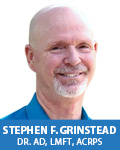 A Mind-Body Approach to Address Chronic Pain and Co-Existing Disorders
A Mind-Body Approach to Address Chronic Pain and Co-Existing Disorders
WORKSHOP 5: PRESENTED BY Steve Grinstead, M.A.
The landscape of chronic pain treatment continues to evolve and change as we wean ourselves off the traditional biomedical approach that often over-emphasizes harmful opioid-based pain management interventions. In this presentation you will learn the unique challenges and obstacles that face chronic pain patients suffering with their pain and coexisting disorders, including medication misuse abuse or addiction. By understanding these unique challenges, you will discover that it requires an integrated, collaborative, and concurrent Body-Mind-Spirit team approach to achieve the best possible treatment outcomes.
Join chronic pain management international expert, Dr. Stephen F. Grinstead, for this dynamic interactive presentation. You will obtain the proper understanding, skills and treatment techniques you need to address the neurobiological psychological/emotional, social and Spiritual aspects of chronic pain when traditional biomedical interventions are no longer a viable option. By attending this presentation, you will discover how common coexisting disorders and family dynamics can also sabotage treatment – and what to do about it. You will learn how to develop a synergistic treatment plan incorporating the mind, body and spirit for healing as well as strategies to empower clients to be proactive in their healing process.
The Current Crisis of Well-Being in Our Children and Youth: An Attachment-Based Developmental Perspective
WORKSHOPS 7 & 10: PRESENTED BY Gordon Neufeld, Ph.D.
What’s happening to our kids? The alarming rise in anxiety, depression and attention problems, begs for an explanation. How is it that, in this time of relative prosperity, with children being more educated than ever, with knowledge now at our fingertips, children and adolescents are becoming increasingly more troubled? How is it that, in an age when kids are finally being seen and heard, when parenting is more child-centered than ever, when schools are finally prioritizing the well-being of students, their suffering is increasing? We have never had more mental health professionals, more advocacy and literacy around mental health, or more mental health services available to us. What are we missing here?! Do we just need to try harder with what we are doing, or do we need to rethink the problem and change our approach?
In this seminar, Dr. Neufeld will unravel this alarming epidemic, tracing the symptoms back to their roots in attachment and development. Only when we understand how troubles evolve can we even begin to hope to address their roots, whether it is individually or societally. We have largely been battling against symptoms with little insight to guide us. The battle has been earnest but nevertheless futile in stemming the tide of unwellness. Never has a fresh new approach to mental health been more needed.
Art Therapy: Creative Interventions for Kids with Trauma, Anxiety, ADHD and More!
WORKSHOP 8 & 11: PRESENTED BY Pamela Malkoff Hayes, MFT, LMHC, LPC, ATR-BC
Join us in our upcoming workshop where you will expand your therapeutic toolkit with innovative art interventions designed to counter catastrophizing thoughts and negative self-talk. Discover how evidence-based treatments can empower your students to cultivate resilience, tolerate frustration, and navigate discomfort without resorting to immediate self-medication. Through this seminar, you will learn a repertoire of art interventions that facilitate emotional transformation, trauma processing, problem-solving, perspective shifting, and progress towards acceptance and gratitude.
Don’t miss this opportunity to enrich your therapeutic practice and empower your students through the transformative potential of art therapy. Join us and embark on a journey towards fostering emotional resilience and growth in your students.
Conquering Anxiety: Strategies for Helping Your Anxious Clients
WORKSHOPS 9 & 12: PRESENTED BY Caroline Buzanko, Ph.D., R. Psych
Despite all the resources and training programs out there, in our post-pandemic world, anxiety is more pervasive than ever before, and people are finding it harder and harder to cope. Unfortunately, when they seek support, many anxious clients do not receive the right kind of help and some professionals even make anxiety worse.
In this workshop, you will discover evidence-based interventions and practical strategies to boost anxious client’s internal locus of control and master anxiety. Designed specifically for mental health professionals, this workshop goes beyond the basics and offers specialized knowledge and skills to optimize outcomes with anxious clients. Using a transdiagnostic approach, you’ll leave with a toolbox filled with concrete strategies that you can use immediately, no matter the nature or severity of your clients’ anxiety.
Wednesday, November 27, 2024 | Day Three
Igniting the Spark: Strategies for Motivating the Disengaged Student
WORKSHOPS 13: PRESENTED BY Caroline Buzanko, Ph.D., R. Psych
Are you ready to ignite the flames of student engagement and unleash the untapped potential of every learner?
Concerns over students meeting academic milestones are paramount in educational settings, often linked to issues of disengagement and lack of motivation. Disengagement has become an alarming challenge, especially since the impact of COVID-19. Since most kids lose their intrinsic motivation for learning in early elementary, we need to know how to break the barriers to engagement together and revolutionize the way we approach student motivation.
Learn how to inspire students to achieve their full potential while transforming the educational experience into a journey of discovery and achievement.
Working with Stuck Kids: An Attachment Based Relational Perspective
WORKSHOPS 14: PRESENTED BY Gordon Neufeld, Ph.D.
Not everyone grows up as they get older. The construct of psychological immaturity has been with us as an intuitive concept for ages, but only recently has developmental science advanced to a state where it can now yield effective strategies and interventions to address learning and behavioural challenges.
Bestselling author of Hold On To Your Kids, Gordon Neufeld presents an integrated developmental approach to reaching troubled kids, using the constructs of attachment, vulnerability and maturation. In this workshop, Gordon takes the best that developmental science has to offer and delivers it in a usable form to the professionals who work with these children or those responsible for them.
His model has been honed from years of application in a wide range of settings: education, special behaviour programs, therapy, corrections, aboriginal communities, adoption, counseling, parenting, and the foster system. This material is applicable to children of all ages, from toddlers to teens. The insights and interventions apply to a wide range of presenting problems and syndromes including attention problems, bullying, impulsiveness, anxiety problems, learning disabilities, autism spectrum, oppositionality, drug abuse, aggression problems, boundary problems, alarming behaviour, boredom and much more.
Join us for this insightful workshop where you’ll gain practical knowledge and strategies to better understand and address psychological immaturity in the children and adolescents you work with.
Working with Oppositional, Defiant and Disruptive Children & Adolescents in the Classroom
WORKSHOPS 15: PRESENTED BY Caroline Buzanko, Ph.D., R. Psych
In today’s complex world, most children and adolescents experience ups and downs and engage in challenging behaviours from time to time. However, these behavioural become problematic when they occur frequently and begin to impair daily functioning. The prevalence of emotional and behavioural issues in young individuals has surged, often without adequate support, leading to potential long-term consequences for their well-being and development.
Early intervention and treatment are crucial to support the social, emotional, and behavioural wellbeing of children and adolescents and reduce future risks. However, many are unsure how to provide effective help, particularly in the heat of the moment.
Are you ready to make a profound difference in the lives of children and adolescents facing intense behavioural challenges? This dynamic workshop is a must for anyone seeking effective strategies to understand, prevent, and respond to oppositional, defiant, and disruptive behaviours.
Equip yourself with the knowledge and skills needed to transform challenging behaviours into opportunities for growth and success. Establish a solid foundation for addressing these behaviours effectively with practical strategies and interventions. Even more importantly, learn how to guide children and adolescents toward positive choices while promoting their resilience and emotional well-being.
Don’t miss this opportunity to make a positive impact on the lives of children and adolescents facing oppositional, defiant, and disruptive challenges. Join us for this comprehensive workshop and be the change they need.
Making Sense of Adolescence
WORKSHOPS 16: PRESENTED BY Gordon Neufeld, Ph.D.
Crossing the bridge from childhood to adulthood has never been so daunting. The time of adolescence is longer than ever and yet society today offers little support in understanding or facilitating this transition. This course is designed to be used by parents, grandparents, teachers, administrators, professionals – anyone who desires to make sense of adolescence. Parents of pre- teens will find this course invaluable as preparation for what lies ahead.
The key to making sense of the adolescent is to understand the underlying developmental dynamics as well as the attachment needs of the adolescent. These needs are typically underestimated due to the physical maturity of adolescents and the resistance to dependence that can result from becoming prematurely attached to peers. Adding to the confusion is the fact that there is more than one developmental pathway to adulthood and societal integration.
Adolescence literally means ‘growing into maturity’. An adolescent is neither child nor adult and therein lies much of the difficulty, the turbulence, the confusion and the challenge. They need us, yet need to not need us. We are their best bet, yet their instincts are to resist us. Unlike primitive cultures, our highly complex society requires a lengthy adolescence with very few rites of passage. The task of turning children into adults has never been more daunting!
Nature’s part in creating grown-ups is to equip them for adult functioning around the time of puberty, ready or not. These changes create their own rites of passage that the adolescent must negotiate to truly mature. Unfortunately, growing up is not a given; not all adolescents embrace their developmental destiny. The most common temptation of adolescence is to replace parents with peers instead of becoming one’s own person. The most common mistake of adults is to back off prematurely. As long as an adolescent is not yet viable as a separate being, he or she is meant to be attached to those responsible for him or her.
These rites of passage create challenges for parents and teachers as well: the adolescent’s new found idealism makes them critical of us; their developmental self-absorption makes them deaf to our perspective; their acute allergy to coercion makes them rather difficult to direct.
Our challenge as adults is to help our teens cross the bridge from childhood to adulthood, to encourage them to embrace their developmental destiny and to ultimately shoehorn them into adult society. Meanwhile, we have the day-to-day challenge of parenting and teaching them, of guiding and directing them, of shielding them from stress.
Adolescence is truly the womb of adulthood and those enveloped in supportive adult relationships have the greatest chance of successfully negotiating this tumultuous time. The challenge is not to treat them as if they were children nor to retreat from them as if they were adults. Learning to ‘dance’ with an adolescent commands the very best in us.



